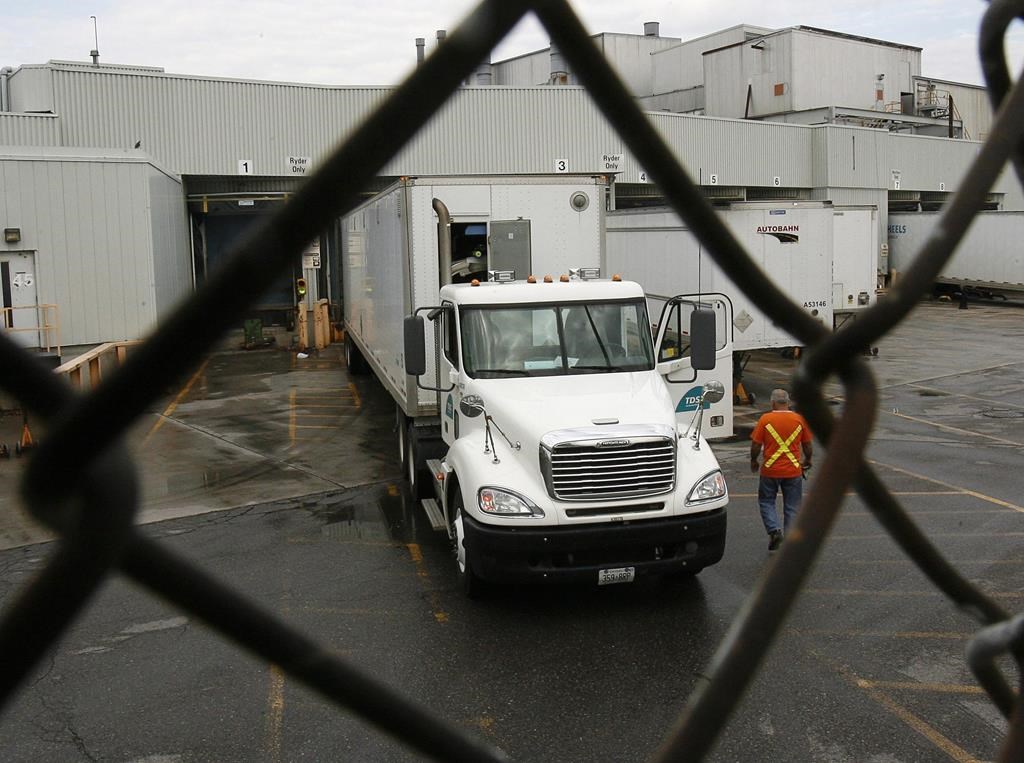Manitoba truckers are used to dealing with floodwaters this time of year, but COVID-19 has put a different kind of roadblock in their way.

They’re are still on the road these days, and many Canadians have a newfound appreciation for all things 18 wheels — as they keep our grocery stores shelves stocked and carry critical personal protective equipment to frontline workers.
But it’s not business as usual.
A large amount of the businesses truckers serve — restaurants, retail stores and event centres, for example — have closed, leading to a slow unraveling of Canada’s supply chain.
That means more and more drivers are logging “empty miles,” traveling without a load to deliver.
“Load ‘A’ that used to get me to ‘B’ that used to get me to ‘C’ just isn’t there anymore,” explains Terry Shaw of the Manitoba Trucking Association.
Manitoba’s supply chain is a vast, interconnected web of routes, and usually, there’s always a load to take back where truckers came from, maximizing their efficiency and profit.
“About a month ago, it just blew up,” Shaw says. “Those typical connections aren’t there. There’s cost efficiency in using that initial load to get to that secondary load, but it may not be there now. That manufacturer may be shut down right now.”
There are still lots of goods to be moved across the province, and that means more truckers are spending one half of their journey with an empty trailer, unable to find anything for the return trip.
It comes at a time when the trucking industry was already dealing with increased costs, with the carbon tax raised on April 1.

Get breaking National news
“That was something we had asked to be stayed because of current conditions. That aside, we are looking for a bit of cost relief. There have been some conversations provincially, but primarily federally through our Canadian Trucking Alliance partners in trying to seek some industry-specific financial relief.”

Coupled with concerns over truckers also transporting COVID-19 while on the job, it’s made for a tough stretch of road.
Jim Willet, mayor of the Alberta border town Coutts, is concerned not enough is being done to mitigate the spread of the virus through the trucking industry.
But the president of the Canadian Trucking Alliance says everyone in the industry is following social distancing guidelines.
“There’s been a huge shift in how the border works, and a process is in place, where the trucking industry and the inspectors are doing their best.”
Truckers have found it difficult to find a place to grab a bite to eat or a washroom to use along the way.

Restaurants are closed, and tractor-trailers can’t make it through most drive-throughs, meaning it’s a diet of gas station sandwiches and beef jerky for workers performing what’s deemed an essential service.
But Shaw things says it’s slowly getting better.













Comments
Want to discuss? Please read our Commenting Policy first.